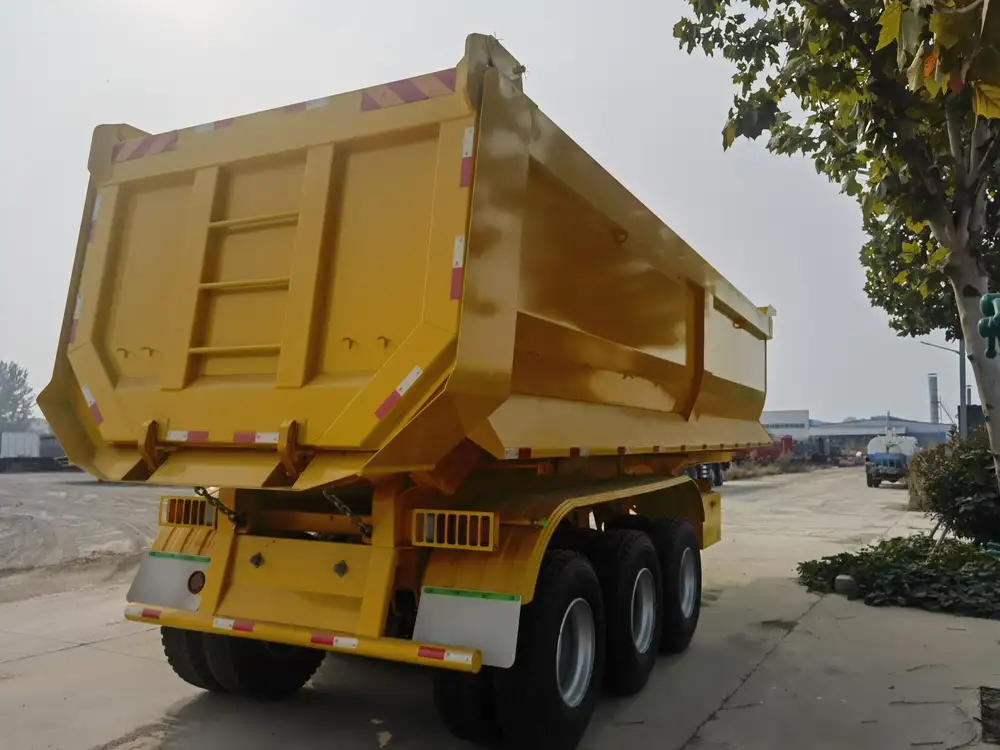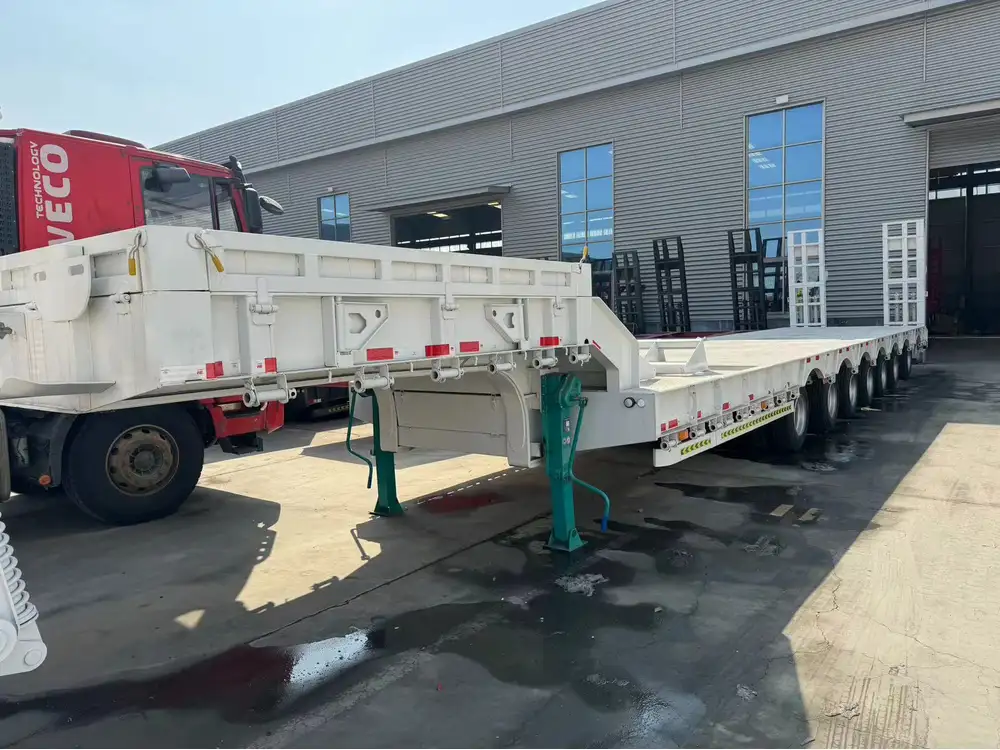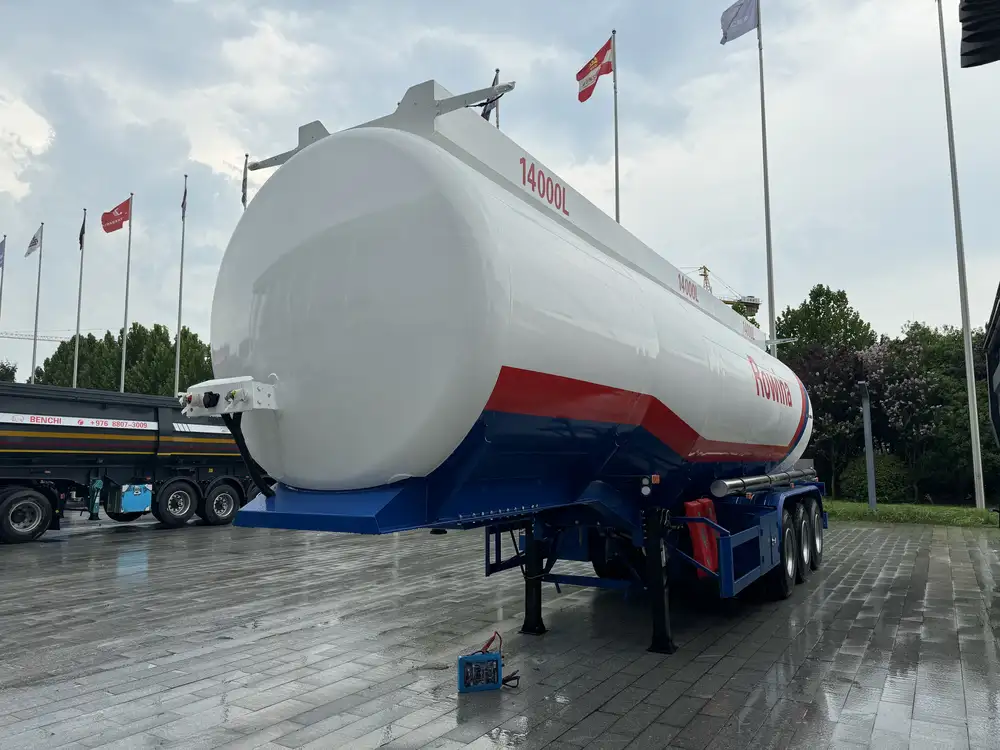When it comes to operating a dump trailer efficiently, understanding the specifications and requirements—including the size of the battery—is crucial. A well-suited battery ensures the reliable performance of hydraulic systems that operate the trailer’s dumping mechanism, thus enhancing productivity and reducing downtime. This comprehensive guide delves into the important aspects concerning the battery used for dump trailers, ensuring users can make informed decisions.
Understanding Dump Trailer Battery Requirements
Dump trailers are equipped with hydraulic systems that require power to operate. Typically, these trailers utilize 12V batteries, but the specifics can vary among makes, models, and the design requirements of the hydraulic pumps. Here, we analyze the various parameters surrounding dump trailer battery requirements:
1. Battery Type Selection
Selecting the right battery type is fundamental. The two primary types of batteries commonly used for dump trailers include:
| Battery Type | Description | Advantages | Disadvantages |
|---|---|---|---|
| Lead-Acid | The traditional battery type—found in many vehicles. | Cost-effective and widely available. | Heavier and may require more maintenance. |
| AGM (Absorbent Glass Mat) | A type of lead-acid battery with added durability. | Maintenance-free and can handle more charge cycles. | Generally more expensive than traditional lead-acid. |

2. Capacity Matters: Amp-Hour Ratings
The battery’s capacity is measured in amp-hours (Ah), indicating how much energy a battery can provide over time. For dump trailers, an ideal capacity typically falls between 100 to 200Ah, depending on usage patterns and load requirements. For example, a standard dump trailer using a hydraulic pump could efficiently function with a 12V, 100Ah battery, while more extensive operations may require a 200Ah configuration.
| Usage Scenario | Recommended Capacity |
|---|---|
| Light Load (up to 5 tons) | 100Ah |
| Moderate Load (5-10 tons) | 150Ah |
| Heavy Load (over 10 tons) | 200-250Ah |
3. Voltage Compatibility
When choosing a battery, it is paramount to ensure that its voltage matches the electrical system of the dump trailer. Most dump trailers operate on a 12V system, making it the standardized choice for compatibility with power supplies and accessories.
4. CCA (Cold Cranking Amps) Requirement
Cold Cranking Amps (CCA) measures the battery’s ability to start an engine in cold temperatures. While primarily a concern for vehicle batteries, it can also apply to dump trailers depending on the auxiliary systems in use. For heavy loads or frequent starts, a CCA rating of around 600 to 900 CCA is often sufficient.

Battery Installation Best Practices
Proper installation of the battery is paramount for ensuring optimal performance. Here are steps to guide the installation:
Step 1: Select an Appropriate Location
Choose a secure, dry location within the trailer confines. The battery should be mounted on a flat surface to avoid movement during transport.
Step 2: Use Quality Connectors
Quality connectors ensure good electrical conductivity. Using marine-grade connectors can enhance durability and corrosion resistance, especially in outdoor environments.

Step 3: Secure the Battery Properly
Use brackets or clamps to secure the battery, preventing movement which could lead to damage over time.
Step 4: Verify Connections
After installation, double-check all connections. Ensure that the positive terminal is connected to the hydraulic pump’s positive lead and the same for the negative terminal.
Maintenance and Care for Dump Trailer Batteries
Maintaining the battery is essential for longevity and performance. Here is a breakdown of best practices:

1. Regular Inspection
Routine inspections help identify corrosion or loose connections. Examine terminals for any signs of wear and tear, and ensure they are clean and free of debris.
2. Battery Charging
Regularly check the battery’s charge state. It’s recommended to have a battery charger at hand, especially during periods of inactivity.
| Charging Frequency | Usage Intensity |
|---|---|
| Once a week | Heavy usage |
| Once every two weeks | Moderate use |
| Monthly | Light use |
3. Seasonal Maintenance
Different seasons bring varying challenges. Cold weather can reduce battery efficiency. It’s beneficial to keep the battery warm during winter months or to use a battery heater if necessary.

Troubleshooting Common Battery Issues
Even with proper care, issues may arise. Here are some common challenges and their solutions:
1. Battery Not Holding Charge
Potential Causes:
- Old age
- Corrosion on terminals

Solutions:
- If the battery is old, consider replacing it.
- Clean terminals and apply anti-corrosion spray to prevent buildup.
2. Slow Hydraulic Operation
Potential Causes:
- Insufficient battery capacity
- Low charge state

Solutions:
- Ensure the battery has adequate capacity for the operational requirements.
- Test the battery charge and recharge if necessary.
3. Frequent Voltage Drops
Potential Causes:
- Poor connections
- Aging battery technology

Solutions:
- Inspect all connections for tightness.
- Evaluate whether the battery is still within its lifespan; consider a replacement if needed.
Enhancing Dump Trailer Performance with Battery Upgrades
Investing in a quality battery can unlock significant performance enhancements. Here are notable upgrades that can improve dump trailer operation:
1. Higher Capacity Batteries
Opting for batteries with a higher Ah rating can ensure longer operation without interruption. It facilitates heavier loads over extended periods.

2. Solar Charging Systems
Integrating a solar panel system on your dump trailer can provide supplementary charging, maintaining battery levels during periods of inactivity or for remote operations.
3. Smart Battery Monitors
Investing in a smart battery monitor allows you to track voltage and capacity levels in real-time. This can aid in better managing battery health and ensuring consistent performance.
Conclusion
Understanding what size battery is utilized for dump trailers is not merely a matter of specifications; it is crucial for maximizing efficiency, ensuring reliable operation, and extending the lifespan of the equipment. By selecting the appropriate battery type, capacity, and maintenance practices, users can optimize their dump trailers for heavy-duty tasks and enhance overall performance. Whether opting to upgrade to AGM technology or incorporating advanced monitoring systems, these informed decisions will lead to smoother operations and increased productivity on the job site. Always consult professional guidance to match the specific needs of your dump trailer and keep it functioning at its best.
This careful approach to battery selection, installation, and maintenance will no doubt aid in achieving reliable, high-performance operation of dump trailers while addressing vital concerns of battery and hydraulic system management. Embrace these insights to empower your operational efficiency today!



